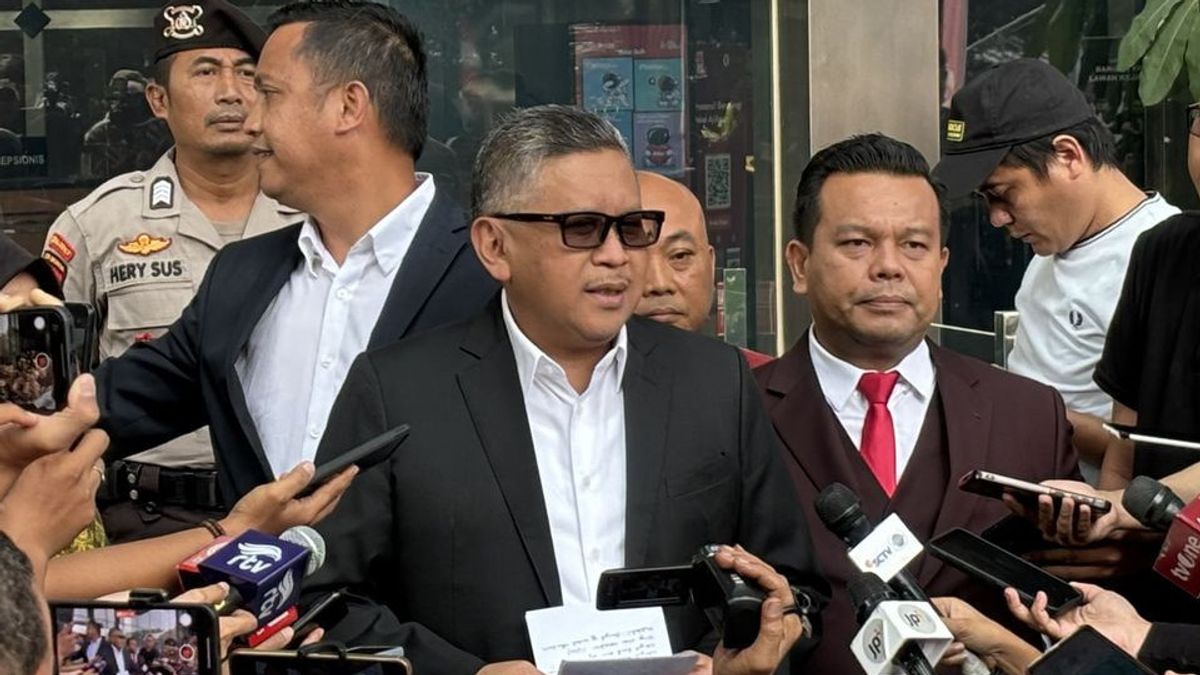Indonesia, a nation known for its vibrant culture and democratic spirit, has witnessed a period of political and social relaxation in recent years. This shift has created a unique environment for individuals like Hasto Kristiyanto, a prominent figure within the Indonesian Democratic Party of Struggle (PDI-P), to navigate the complexities of the political landscape.
Hasto, a seasoned politician and strategist, has played a crucial role in shaping the party’s direction and influencing national policies. His rise within the PDI-P coincided with a period of evolving political dynamics, where public discourse became more open and critical, and societal pressures for greater transparency and accountability intensified.
The Context of Relaxed Indonesia
The term “relaxed Indonesia” can be interpreted in various ways. It can refer to:
A more open and tolerant society: Increased freedom of expression, reduced censorship, and a growing civil society have fostered a more vibrant public sphere where diverse viewpoints can be expressed freely.

This relaxed atmosphere has created both opportunities and challenges for political actors like Hasto Kristiyanto. On the one hand, it allows for greater public engagement and a more nuanced understanding of public opinion. On the other hand, it demands greater transparency and accountability from politicians, as public scrutiny has intensified.
Hasto Kristiyanto and the PDI-P
Hasto Kristiyanto’s career within the PDI-P has spanned several decades. He has served in various capacities, including as a member of the party’s central executive board and as a key advisor to party chairwoman Megawati Soekarnoputri.
Hasto’s influence within the party stems from his strategic acumen and his deep understanding of Indonesian politics. He is known for his:
Political foresight: Hasto has consistently demonstrated an ability to anticipate political trends and adapt the party’s strategies accordingly.
Under Hasto’s influence, the PDI-P has maintained its position as a dominant force in Indonesian politics. The party has successfully navigated several electoral cycles, winning presidential elections and maintaining a strong presence in the legislature.
Navigating the Relaxed Political Landscape
In the context of a relaxed Indonesia, Hasto and the PDI-P have had to adapt their strategies. The party has:
Emphasized inclusive politics: The PDI-P has sought to broaden its appeal beyond its traditional base, reaching out to diverse segments of the population, including young people, women, and minority groups.
Hasto Kristiyanto has played a key role in implementing these strategies. He has been instrumental in:
Modernizing the party’s image: The PDI-P has sought to present itself as a modern and progressive party, appealing to a younger generation of voters.
Challenges and Opportunities
While the relaxed political environment presents opportunities for the PDI-P, it also poses significant challenges. These include:
Increased public scrutiny: The heightened public scrutiny demands greater transparency and accountability from the party and its leaders.
Despite these challenges, the PDI-P, under Hasto’s guidance, has demonstrated its resilience and adaptability. The party has shown a willingness to embrace change and evolve in response to the changing political landscape.
The Role of Communication and Engagement
In a relaxed Indonesia, effective communication and engagement with the public are crucial for political success. Hasto Kristiyanto has recognized the importance of:
Utilizing social media: The PDI-P has actively utilized social media platforms to connect with voters and disseminate its message.
These efforts have helped to enhance the party’s image and build public trust. By effectively communicating its message and engaging with the public, the PDI-P has been able to maintain its popularity and influence.
Conclusion
Hasto Kristiyanto’s rise within the PDI-P coincides with a period of significant political and social change in Indonesia. The relaxed political environment has created both opportunities and challenges for the party.
By adapting its strategies, embracing change, and effectively communicating with the public, the PDI-P, under Hasto’s leadership, has navigated these challenges and maintained its position as a dominant force in Indonesian politics.
As Indonesia continues to evolve, the PDI-P and Hasto Kristiyanto will need to remain agile and responsive to the changing needs and expectations of the Indonesian people. By embracing innovation, fostering inclusivity, and prioritizing good governance, the party can continue to play a crucial role in shaping the future of Indonesia.


.png?w=200&resize=200,112&ssl=1)


